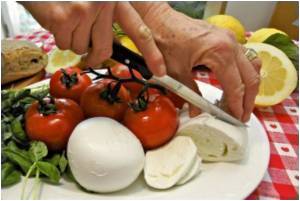Food prepared with tender loving care and good intentions always tastes better and helps reduce pain, according to scientists.

Researchers from the University of Maryland looking into human experience found that one's experience of a physical sensation, such as taste, are affected by how they perceive the person administering it.
They also found that patients in hospitals felt less pain during procedures when a sweet-natured nurse carried them out.
"The way we read another person's intentions changes our physical experience of the world," the Daily Mail quoted Kurt Gray as saying.
"The results confirm that good intentions - even misguided ones - can soothe pain, increase pleasure and make things taste better.
"It seems we also use the intentions of others as a guide for basic physical experience.'
The conclusions of the study were drawn from three different experiments, examining pain, pleasure and the taste of a sweet treat.
Meanwhile, those receiving help from family and friends felt more comforted if they believed the assistance was bestowed with generosity and compassion. And those eating sweet treats experienced more enjoyment when they thought that the cook had prepared it lovingly.
"It's no surprise that food companies always pair their products with kindly old grandfathers and smiling mothers - thinking of this make-believe benevolence likely increases our enjoyment.
"To the extent that we view others as benevolent instead of malicious, the harms they inflict upon us should hurt less, and the good things they do for us should cause more pleasure.
"Stolen parking places cut less deep and home-cooked meals taste better when we think well of others," Gray added.
Source-ANI
 MEDINDIA
MEDINDIA




 Email
Email










